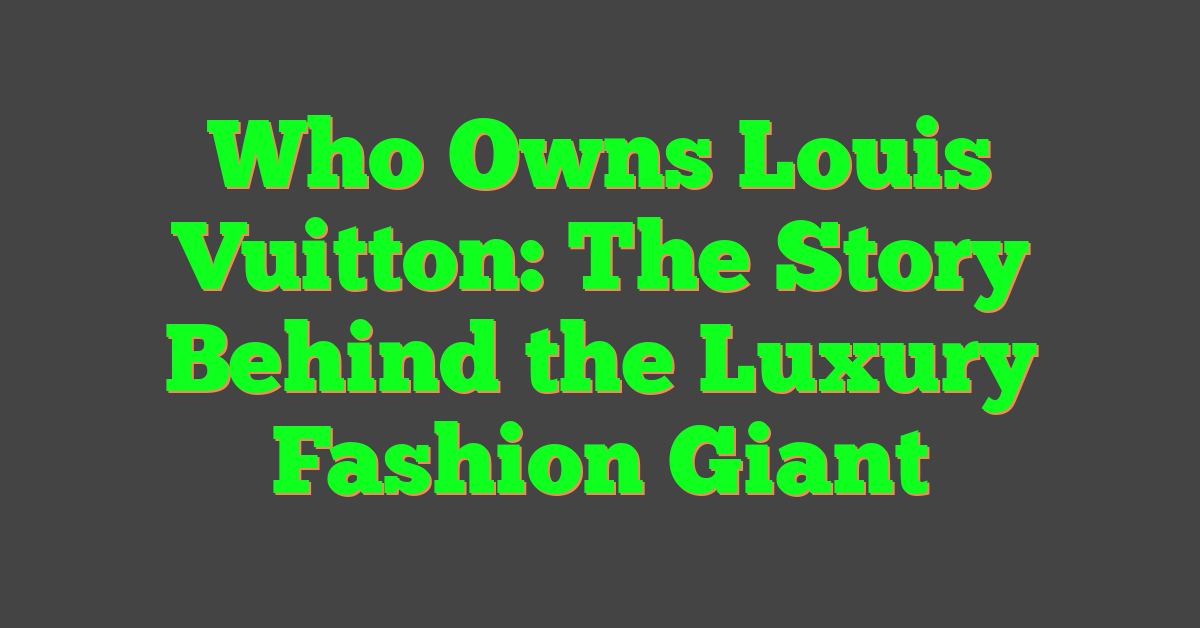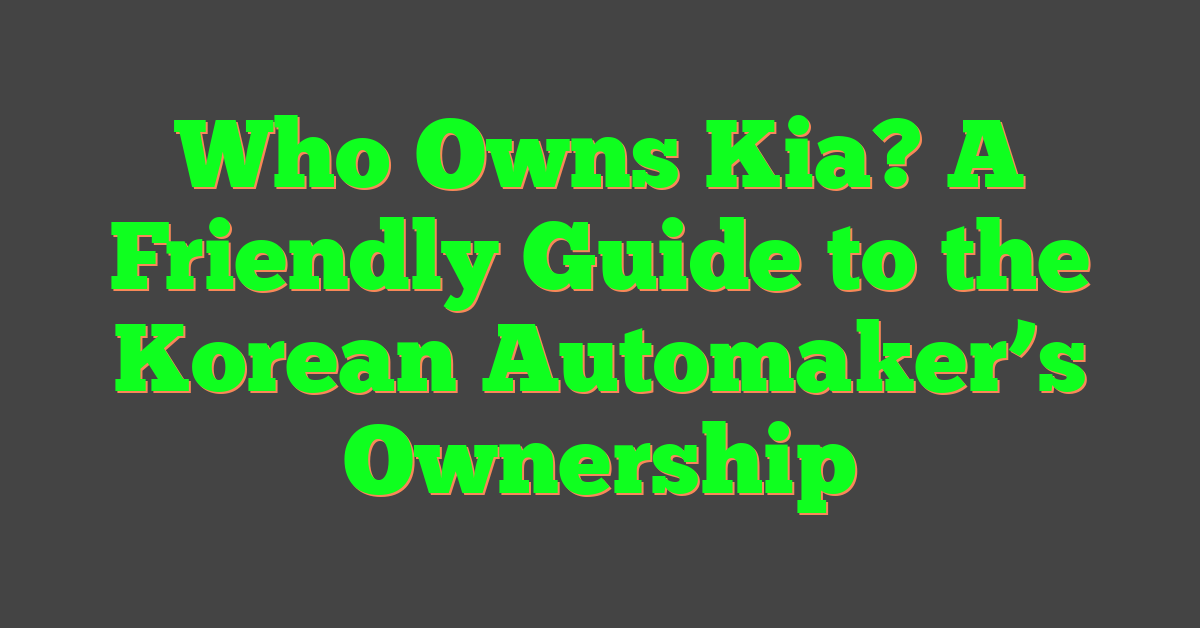Wondering who’s behind the iconic Reebok brand today? The sportswear giant has changed hands in recent years, making waves in the retail industry.
Authentic Brands Group (ABG) now owns Reebok after finalizing its acquisition from Adidas in 2022. This marked ABG’s largest acquisition to date.

Basketball legend Shaquille O’Neal played a surprising role in this ownership change. As the second largest investor in ABG, Shaq has a stake in Reebok along with other major retail brands like Forever 21 and JCPenney. His connection to Reebok goes beyond business—he actually pushed ABG to purchase the brand, adding a fascinating personal element to this corporate transition.
Recent developments show continued changes for Reebok’s operations. The brand’s US operations were acquired by Galaxy Universal, which plans to open more full-price and experiential stores. This signals a new chapter in Reebok’s retail strategy while remaining under ABG’s overall ownership.
Key Takeaways
- Authentic Brands Group acquired Reebok from Adidas in 2022, bringing the iconic sportswear brand under new ownership.
- Shaquille O’Neal holds significant influence in Reebok’s current ownership structure as the second largest investor in ABG.
- Galaxy Universal now manages Reebok’s US operations with plans to expand the brand’s retail presence through experiential stores.
History of Reebok

Reebok’s story begins in the 1890s when Joseph William Foster started the brand in Bolton, UK. At first, he was learning shoemaking from his grandfather. This small family business created what many consider some of the first running shoes with spikes!
The company wasn’t always called Reebok. In fact, the Foster family changed the name to Reebok much later. The name “Reebok” comes from an African gazelle, chosen to represent speed and grace.
Reebok really took off in the 1980s with the aerobics boom. Their Freestyle shoe became super popular with fitness enthusiasts. The brand quickly grew to become a major player in the sports footwear industry.
In 1992, Reebok made a big splash in the basketball world by signing Shaquille O’Neal. This helped cement their place in basketball shoe history alongside their popular Pump technology.
A major change came in 2005 when Adidas purchased Reebok for $3.8 billion. This partnership lasted until recently when Adidas sold Reebok to its current owner.
Reebok’s journey from number one and back down shows how competitive the sports footwear market can be. Despite ups and downs, the brand remains iconic in sports history.
Authentic Brands Group Overview

Authentic Brands Group (ABG) has become a major player in the global brand ownership landscape since acquiring Reebok from Adidas. This brand powerhouse manages an extensive portfolio of consumer brands and celebrity estates through its unique business approach.
ABG’s Business Model
Authentic Brands Group operates with a distinctive business model focused on acquiring and revitalizing iconic brands. They don’t manufacture products themselves. Instead, they license their brands to various partners who handle production and distribution. This approach allows ABG to focus on marketing and brand management.
ABG was founded in 2010 and has grown rapidly through strategic acquisitions. The company completed the acquisition of Reebok from Adidas, marking one of its most significant brand purchases.
Their strategy involves identifying brands with strong recognition but financial challenges, then leveraging their expertise to restore value. This has made ABG a powerful force in the retail and fashion industries.
Portfolio Companies
ABG’s impressive brand collection spans across fashion, sports, entertainment, and lifestyle categories. Their portfolio includes over 50 consumer brands and several celebrity estates.
In the fashion realm, ABG owns notable brands like Barneys New York and Forever 21. They’ve rescued these retailers from bankruptcy and worked to revitalize their presence in the marketplace.
ABG also manages the estates and likeness rights of iconic celebrities including Muhammad Ali, Elvis Presley, and Marilyn Monroe. This diverse mix of properties showcases the company’s wide-ranging influence.
The addition of Reebok for approximately $2.5 billion in 2021 strengthened ABG’s position in athletic apparel. This acquisition aligned perfectly with their strategy of obtaining established brands with global recognition.
Reebok’s Ownership Transition

Reebok has changed hands twice in recent decades, moving from a sports industry giant to new ownership models that have reshaped its business strategy and market position.
Acquisition by Adidas
In 2005, Adidas bought Reebok in a significant sportswear industry merger. The German sporting goods company saw Reebok as a valuable addition to help compete against industry leader Nike.
During Adidas ownership, Reebok underwent several strategic shifts. The brand maintained its unique identity while benefiting from Adidas’ global distribution networks and manufacturing resources.
Despite initial optimism, Reebok struggled to achieve consistent growth under Adidas. The parent company attempted various revival strategies including partnerships with CrossFit and UFC to rebuild the brand’s credibility in fitness markets.
After 16 years of ownership, Adidas decided to divest from Reebok to focus on its core brand. This decision marked the end of an era for both companies.
Sale to Authentic Brands Group
In 2021, Adidas sold Reebok to Authentic Brands Group (ABG), a company known for managing consumer brands. This transaction represented a new chapter for the athletic footwear company.
ABG implemented a licensing strategy for Reebok, dividing operations between different partners. Recently, Galaxy Universal acquired Reebok’s US operations and its design group, taking control of a significant portion of the business.
Additionally, Galaxy Universal obtained Reebok’s global product creation, sourcing, and US footwear license. The company also entered into a joint venture to manage Reebok’s European operations.
This complex ownership structure represents ABG’s approach to revitalizing heritage brands through specialized partnerships rather than direct operations.
Strategic Partnerships

Reebok has formed several key partnerships to strengthen its brand position after being acquired by Authentic Brands Group. These collaborations span both sports and entertainment sectors, bringing fresh energy to the iconic footwear and apparel brand.
Sports Endorsements
Reebok has maintained strong relationships with sports legends who help elevate the brand’s visibility. Shaquille O’Neal remains one of Reebok’s most notable partners, with his signature Shaq Attaq shoes continuing to be popular among basketball fans. The partnership began in the 1990s and remains strong today.
Allen Iverson represents another crucial sports endorsement for Reebok. His “Question” and “Answer” signature shoes are basketball classics that still generate excitement with each re-release.
Reebok also partners with athletes across various sports. These sports partnerships help Reebok stay relevant in the performance athletic market while also appealing to fans who wear the gear for everyday style.
Entertainment Collaborations
Reebok has expanded beyond sports through strategic entertainment partnerships. The brand has partnered with New Guards Group to develop luxury collaborations that appeal to fashion-forward consumers.
Celebrities and musicians frequently collaborate with Reebok on limited-edition collections. These partnerships help the brand reach younger audiences and stay culturally relevant.
Reebok also works with fashion designers to create unique collections. These collaborations blend athletic functionality with high-fashion aesthetics, attracting consumers who value both style and performance.
JD Sports has become a key retail partner, carrying Reebok products in over 2,850 company-owned stores worldwide. This partnership significantly expands Reebok’s global reach.
Authentic Brands Group has also established partnerships with Galaxy Universal and Batra Group to accelerate Reebok’s growth in the US, Europe, and the UK markets.
Marketing and E-Commerce Evolution

Reebok has transformed its marketing approach and digital presence over the years to adapt to changing consumer preferences and shopping behaviors.
Traditional Marketing Tactics
Reebok built its brand identity through strategic sponsorships and memorable advertising campaigns. In the 1980s and 1990s, Reebok signed deals with major athletes and fitness personalities to promote their products. These partnerships helped establish Reebok as a trusted name in athletic footwear and apparel.
Television commercials featuring professional athletes became a cornerstone of Reebok’s marketing strategy. The company also invested heavily in print advertisements in sports magazines and billboards in urban areas.
Store displays and point-of-purchase materials helped Reebok stand out in retail environments. Even today, physical stores still dominate Reebok’s sales strategy despite the growth of online shopping.
E-Commerce Enhancement
Reebok has embraced digital transformation to reach customers directly through online channels. Their official website offers a seamless shopping experience with detailed product descriptions, sizing guides, and customer reviews.
The brand has expanded to third-party e-commerce platforms like Amazon and Zappos to increase their digital footprint. Social media integration allows customers to shop directly through Instagram and Facebook posts featuring Reebok products.
Mobile optimization has been a priority. They have added responsive design and dedicated apps for convenient shopping on smartphones. Under Authentic Brands Group ownership, Reebok has continued to invest in its e-commerce capabilities.
Personalization features track customer preferences to offer tailored product recommendations and targeted promotions. This data-driven approach helps Reebok better understand and serve their customer base in the competitive athletic wear market.
Brand Influence on Culture and Fashion

Reebok has shaped both athletic and street fashion since its founding in 1958. The brand’s journey from athletic footwear to cultural icon shows its ability to connect with diverse audiences across sports and style.
Impact on Basketball Culture
Reebok made a huge splash in basketball culture during the 1980s and 1990s. The brand signed legendary players like Shaquille O’Neal and Allen Iverson. They created iconic signature shoes that basketball fans still remember today.
The Reebok Pump technology, introduced in 1989, revolutionized basketball footwear with its innovative inflatable custom fit system. This technology helped Reebok compete with other giants in the basketball market.
Iverson’s “Question” and “Answer” shoe lines became particularly influential. They represented not just athletic performance but also the merging of basketball and hip-hop culture. These shoes helped Reebok become a cultural influence on global street fashion.
Collaborations with Fashion Brands
Reebok has strengthened its fashion credentials through strategic collaborations with designers and cultural figures. The brand has worked with high-fashion names like Vetements and Victoria Beckham, bringing athletic wear into luxury fashion spaces.
Recent partnerships include the ongoing collaboration with Places + Faces, celebrating both brands’ influence on global street fashion and music. This Fall 2024 footwear collection highlights Reebok’s continued relevance in contemporary style.
Reebok has also revived classic models like the Club C and Classic Leather through limited edition releases and collaborations. These efforts have helped position Reebok alongside brands like Champion in the heritage sportswear category that appeals to both athletic consumers and fashion enthusiasts.
The Future of Reebok Under ABG

Reebok’s future looks bright under Authentic Brands Group (ABG). This major brand change marks a new chapter for the iconic footwear and apparel company.
Under ABG’s leadership, Reebok has ambitious financial goals. The company is expected to see global retail sales exceeding $5 billion in 2022. Even more impressive, ABG aims to grow these numbers significantly over the next five years.
ABG has created partnerships to manage different aspects of Reebok’s business. For example, Galaxy Universal now handles Reebok’s footwear operations, retail stores, and e-commerce in the US. They’re also responsible for leading Reebok’s global footwear business.
The brand’s retail strategy is evolving with these new partnerships. Physical stores and online shopping experiences are being refreshed to appeal to both loyal Reebok fans and new customers.
Not all partnerships have gone smoothly, though. ABG has ended its licensing agreement with New Guards Group due to unresolved financial terms. This shows how ABG is carefully managing which companies represent the Reebok brand.
As part of ABG’s extensive brand portfolio, Reebok joins other famous names in fashion, sports, and entertainment. This connection gives Reebok new opportunities for creative collaborations and market expansion.




